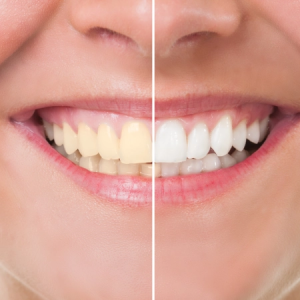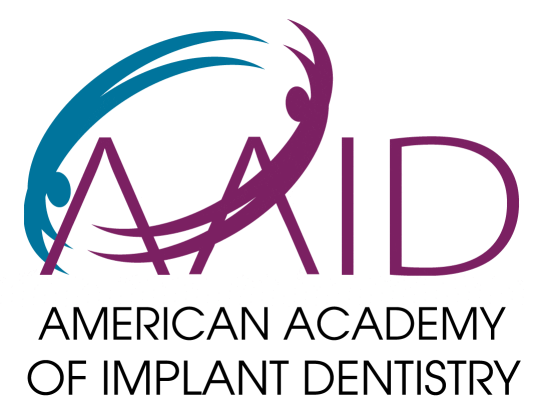Looking for the best way to whiten teeth easily? In a world where numerous teeth-whitening products flood the market, finding a safe and effective method can be challenging. Whether you're seeking a quick fix or a long-lasting solution, understanding the safest and most reliable teeth whitening options is crucial.
In this comprehensive guide, we'll explore the top teeth whitening methods that offer both ease of use and impressive results.
Teeth lose their whiteness due to various factors. Some reasons include genetics, teeth injury and trauma, medication side effects, and medical treatments like chemotherapy and radiation. However, the most common cause of teeth discoloration is prolonged exposure to staining agents like coffee, tea, soda, and tobacco.
The outer layer of teeth enamel starts to erode as we get older. Teeth become thinner due to enamel erosion, making them more translucent and possibly making them grayer.
Additionally, tooth dentin tends to grow as we age. Dentin is a hard tissue beneath tooth enamel. When it expands, the pulp tissue at the center of each tooth shrinks. This process increases the opacity of teeth, making them appear more yellowish.
Most whitening toothpastes do not inherently whiten or bleach teeth.
Hydroxyapatite (HAp) toothpaste stands out as the sole whitening toothpaste capable of intrinsically whitening teeth from within. It essentially "fills in" enamel gaps for a whiter, brighter appearance.
Cost: $5-30 per tube.
Make the Switch to an Electric Toothbrush
Electric toothbrushes excel in removing surface stains from teeth compared to manual toothbrushes.
Among electric toothbrushes, oscillating models are generally more effective for teeth whitening than sonic-powered ones.
The cost of electric toothbrushes varies significantly due to the additional features they often include. There is no evidence that features like Bluetooth, or specialized heads enhance brushing in a way that improves teeth-whitening results.
Cost: $8-$300 (high-quality electric brushes typically range from $25-$80)
Professional Tooth Whitening Treatment
Professional tooth whitening sessions at your dentist's office typically range from 1 to 3 sessions lasting 30 to 60 minutes each.
During each session, your dentist will apply a concentration of carbamide or hydrogen peroxide (20-43%) onto your teeth. A polymerization light is then used to activate the gel, which is reapplied several times throughout the session.
Some dentists may use a UV light to quicken the chemical reaction and the whitening process. Alternatively, you might have the option for a single 2-hour session, which will always include UV light.
Cost: $650-1250 per session.
Custom Whitening Gel Tray
The most effective and enduring method for whitening teeth is through custom whitening gel trays, which are tailored to fit your teeth based on unique impressions made by your dentist.
These trays can be kept indefinitely as long as your teeth remain in their current positions. Whitening gel, stored in the refrigerator, can be purchased separately for home use whenever you wish to whiten your teeth.
Here's how to use a custom whitening gel tray:
- Remove the whitening gel from your refrigerator.
- Apply the peroxide gel to the tray.
- Gently place the tray over your teeth, ensuring a snug fit to protect your gums from exposure to the gel.
- Leave the tray on for 1-3 hours; avoid leaving it on overnight to prevent tooth sensitivity.
- Store the whitening tray in water with baking soda when not in use, similar to caring for a retainer or night guard.
Most people achieve their desired results within 2-3 weeks of daily use, though stubborn yellowing may take 6-8 weeks to whiten. Avoid whitening for multiple weeks more than once per year.
When purchasing over-the-counter gels for home use, avoid concentrations above 10% to prevent tooth sensitivity.
Cost:
- $250-500 for a custom tray
- $20-40 for each peroxide gel refill
Use Whitening Strips
Whitening strips consist of small, flexible plastic pieces coated with a whitening gel, such as Crest Whitestrips.
To apply these products, like Crest Whitestrips, one strip for the top and another for the bottom are molded around the teeth and left in place for 5-30 minutes. Most Whitestrips are designed for use over several weeks, although some Crest Whitestrips can achieve teeth whitening at home in just one day.
Because the peroxide and adhesives in most white strips can potentially harm or irritate the sensitive gum tissue, it's advisable to trim the strips before application.
Certain "natural" whitening strips do not contain bleaching agents but utilize alternative whitening agents to eliminate stains. However, these alternative agents do not intrinsically whiten teeth.
It's important to ensure that the gel in white strips does not come into contact with tooth decay, so using these teeth whiteners shortly after a dental visit can help ensure that any untreated cavities are addressed.
Cost: $13-60, depending on the strength and brand
Baking Soda Toothpaste
Baking soda (sodium bicarbonate) is a proven home remedy for addressing yellowing teeth.
Studies suggest that toothpastes containing baking soda are more effective at removing stains from yellowing teeth compared to other toothpastes. Generally, the higher the concentration of baking soda, the better the results.
While you can search for toothpastes that contain baking soda, the simplest way to utilize this remedy is to create your own:
- Mix 2 teaspoons of water along with 1 teaspoon of baking soda.
- Dip your toothbrush into the mixture.
- Brush your teeth as usual.
Cost: $1-$30, based on the brand of baking soda or baking soda toothpaste.
Oil Pulling
Oil pulling is often touted as a method to remove surface stains from teeth, but its effectiveness as a teeth whitener is limited. Nonetheless, it does help balance the oral microbiome and alleviate inflammation associated with bleeding gums or gingivitis.
Coconut oil possesses properties that enable it to bind to bacteria on the teeth, thereby eliminating some surface stains. However, oil pulling does not result in noticeably whiter teeth beyond what can be achieved by regularly swishing your mouth with water.
Adopt Effective Oral Hygiene Practices
As we age, it's natural for teeth to undergo some yellowing. However, maintaining good dental hygiene can help prevent rapid discoloration.
It's important to note that using antibacterial products in your oral hygiene routine can negatively impact the oral microbiome. Therefore, it's advisable to avoid or significantly limit the use of antibacterial mouthwash, antibacterial toothpaste, essential oils, and hydrogen peroxide mouth rinses.
Here's what an effective oral hygiene routine entails:
- Brush your teeth at least twice a day, making sure to brush 45 minutes after consuming sugary, acidic, or processed foods.
- Floss daily to get rid of plaque and food particles from between your teeth.
- Use a tongue scraper to remove bacteria and food debris from the surface of your tongue.
- Consider incorporating oil pulling with coconut oil into your routine for added oral health benefits.
- Dental probiotics can be beneficial, especially if you experience issues like bad breath, cavities, or bleeding gums.
By following these practices, you can help maintain the brightness and health of your smile over time.
Attend Regular Dental Checkups
Regular dental checkups every six months play a crucial role in preventing tooth stains and yellowing.
During these appointments, your hygienist will conduct a thorough teeth cleaning, removing tartar buildup that cannot be effectively removed at home. By removing tartar and addressing any emerging issues, dental checkups help improve the overall color and health of your teeth, ensuring a brighter and more confident smile.
Veneers
If you have permanent damage to your teeth, such as stubborn discoloration that cannot be remedied, consulting your dentist about veneers is advisable.
Veneers are durable, custom-made tooth coverings designed to mask imperfections and enhance the appearance of damaged teeth permanently. Unlike dental implants, veneers offer a less invasive solution to restore the aesthetics of your smile.
While veneers do not function as traditional teeth whitening methods, they effectively conceal natural teeth. Collaborating with your dentist, you will select a tooth color for the veneers during the process, as they cannot be whitened afterward.
Investment: On average, expect to spend $19,200 for a complete set of veneers.









